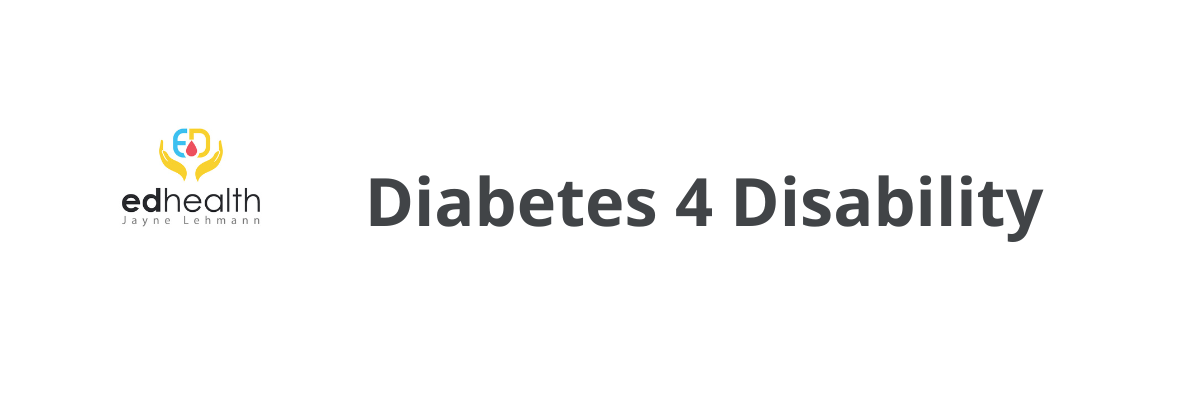Introduction:
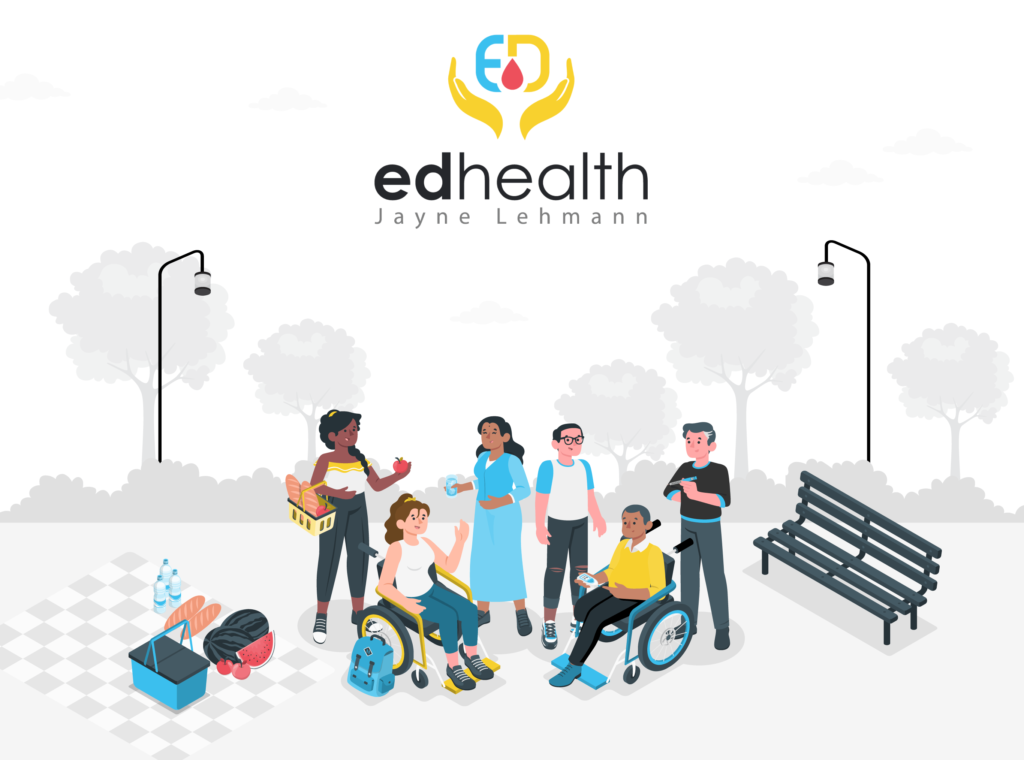
EdHealth’s Diabetes 4 Disability (D4D) course is individualised to train support workers around the diabetes care and support needs of their NDIS participant. This course complies with NDIS Quality and Safety Commission requirements.
Modules and lessons are combined to create a D4D course to suit each group of support workers.
Knowledge and skills evaluation
To ensure quality outcomes from the D4D training, knowledge and skills are evaluated throughout the course.

A quiz is completed at the end of each Module and additional lessons, with a pass mark of 80%.
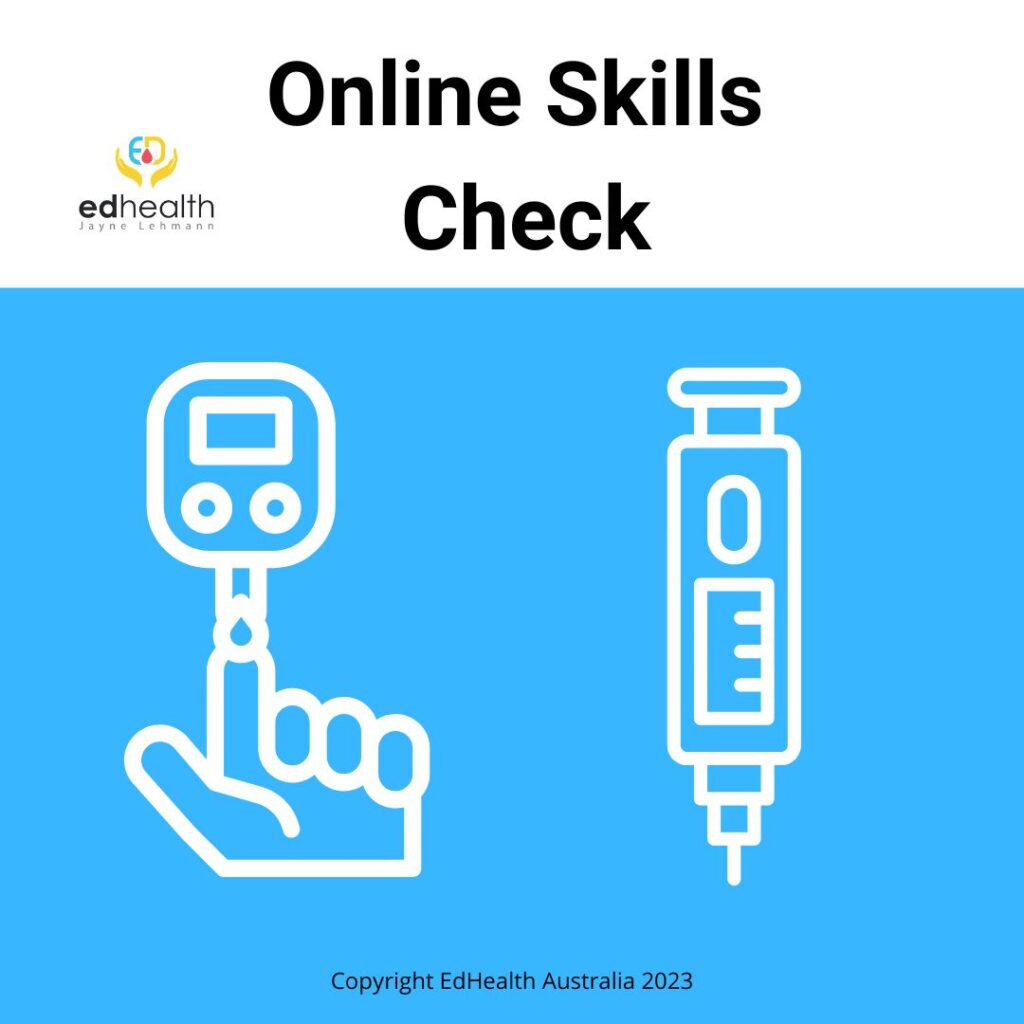
Any diabetes skills taught in the D4D program are evaluated in an Online Skills Check (OSC) session with our Credentialled Diabetes Educator/diabetes educator. Information about the specific needs of each NDIS client are provided to supplement the information provided in the online course.
Practice Packs

To learn a skill, practice equipment is required. EdHealth offers Practice Packs of equipment you can hire for participants to use during the online course and to have their skills evaluated in an OSC.
Support
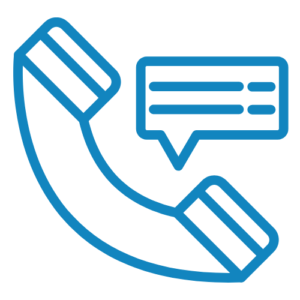
IT support is provided to keep participants on track with their online learning.
Click! for more information
Module 1: Diabetes
Length: 2-3 hours
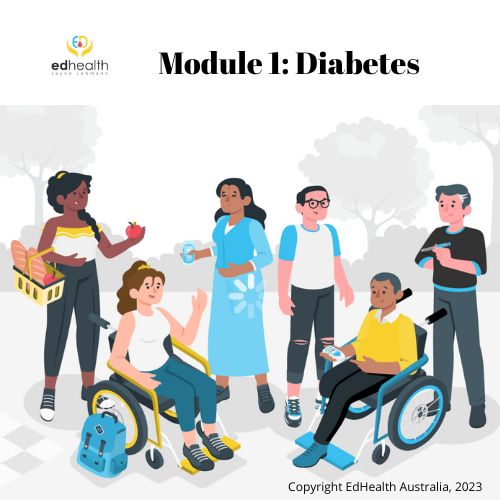
This Module provides a foundation of understanding about diabetes care within the disability support environment.
Lesson 1: What is Diabetes
Lesson 2: Lifestyle management of diabetes
Lesson 3: Diabetes medication and hypoglycaemia
Lesson 4: Diabetes linked health issues
Lesson 5: Diabetes self/supported management strategies
Lesson 6: The diabetes health team and community care
At the end of each lesson and end of Module 1:

Module 2: Glucose monitoring
Length: 1-2.5 hours.

This Module focuses on glucose monitoring for participants to accurately and safely Check, Think and Act on glucose levels for improved diabetes outcomes in their client.

Lesson 1: How to blood glucose monitor
Lesson 2: Role of support workers in glucose monitoring
At the end of Module 2:


Additional Lessons
Continuous Glucose Monitoring

NDIS participants using Libre or Dexcom G6 continuous glucose monitoring systems, require their support workers to be taught how to use their devices. Conducted by one of the EdHealth Credentialled Diabetes Educators/Diabetes educators, this training is provided as an Online Skills Session with the essential knowledge and skills covered
Coming soon:

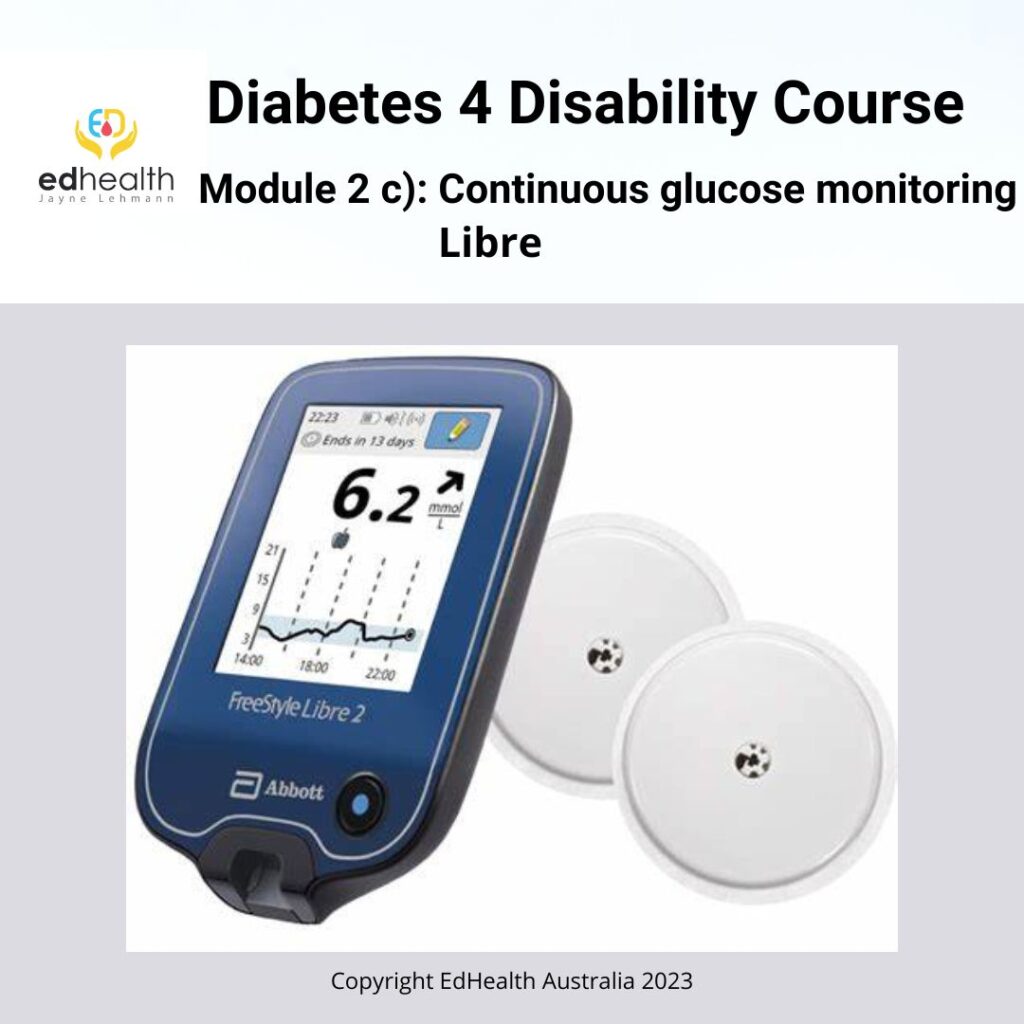
N.B. Online theory modules are currently being written to teach future participants about the Libre 2 and Dexcom G6 continuous glucose monitoring systems.
These modules will replace the current Online Skills Sessions and technique will be evaluated in an Online Skills Check.
Module 3: Diabetes injectables
Length: 1.5-2 hours.

Support workers know their clients and trigger less behaviours when giving insulin than their nursing counterparts. That’s because they are known to the person and can work within their normal routines to provide their diabetes care. This module delivers the knowledge, skills and confidence a support worker needs to give an insulin injection, or support their client to self-inject, and manage all aspects of their insulin.

Lesson 1: Why do people need insulin?
Lesson 2: How to give an insulin injection?
Lesson 3: Hypoglycaemia – Identification, treatment and prevention
At the end of Module 3:


Additional lessons:
Ozempic (semaglutide)
Length: 1 hour

Ozempic is a non-insulin injectable diabetes medication support workers either give to their client or support them to do this themselves.

PLUS:


Trulicity (dulaglutide)
Length: 1 hour

Trulicity is a non-insulin injectable diabetes medication support workers either give to their client or support them to do this themselves.

PLUS:


Module 4: GlucaGen HypoKit
Length: 45 minutes

The GlucaGen HypoKit is an emergency injectable medication support workers can learn to administer to treat severe hypoglycaemia in people on insulin. Ambulance callout times have increased, creating a greater need for support workers to be trained to give this medication in the event of a severe hypoglycaemia event.

PLUS:

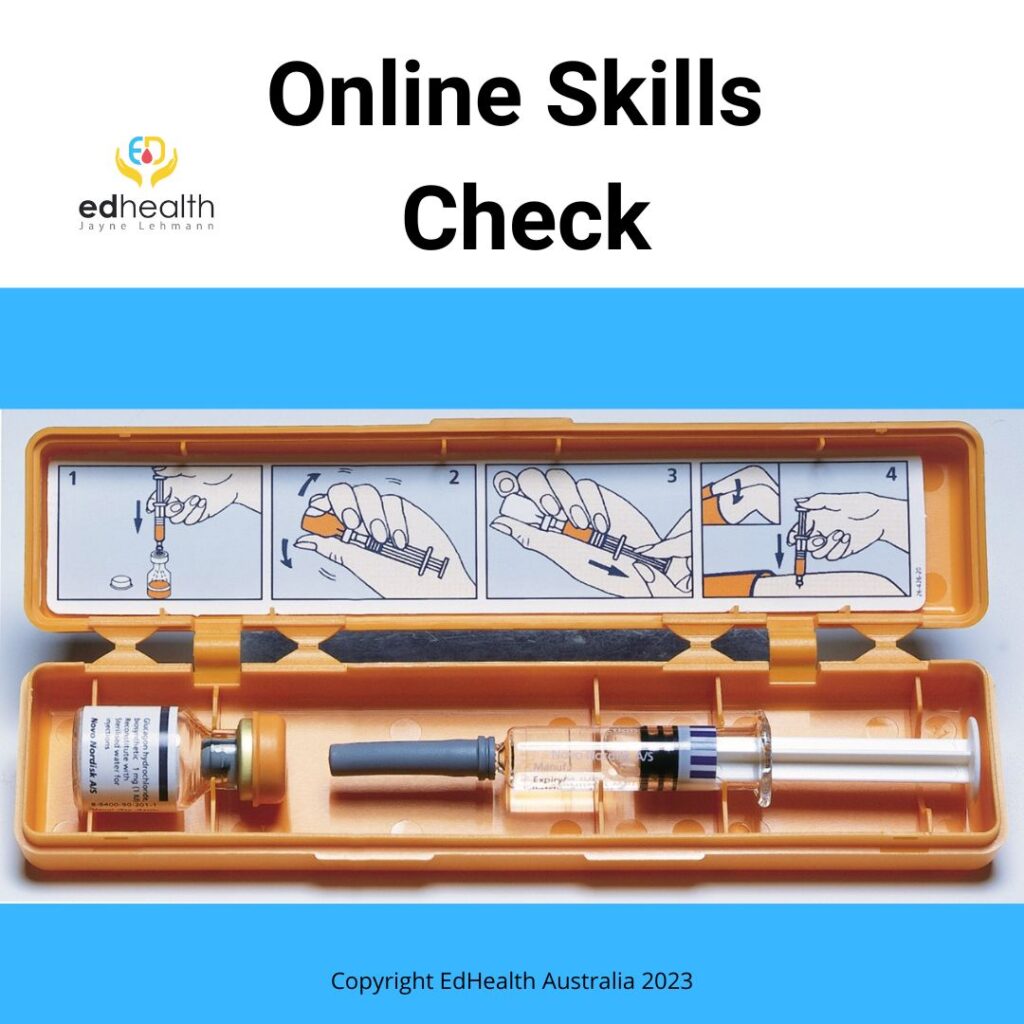
Contact Us

Contact EdHealth about your organisation’s diabetes training needs. We can provide a quote for a customised Diabetes 4 Disability training solution to match the needs of your NDIS participant and support workers.
Click! and complete the contact form and an EdHealth Team member will get back to you.
Email: admin1@edhealth.com.au Phone: 0412 102 048

